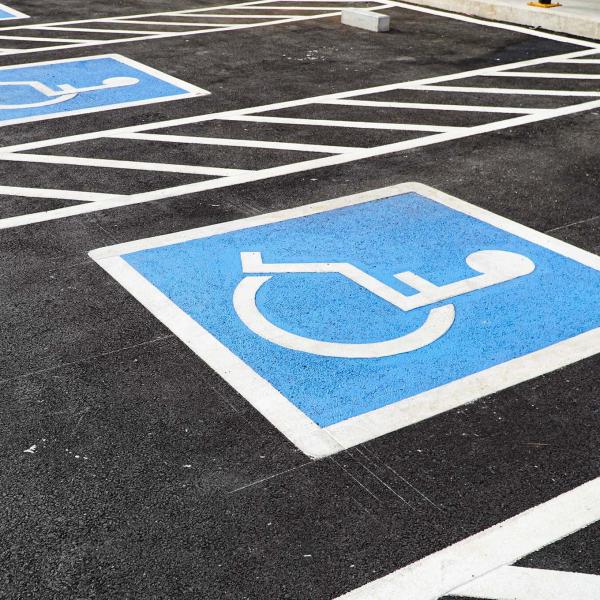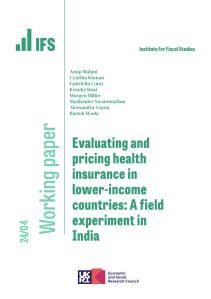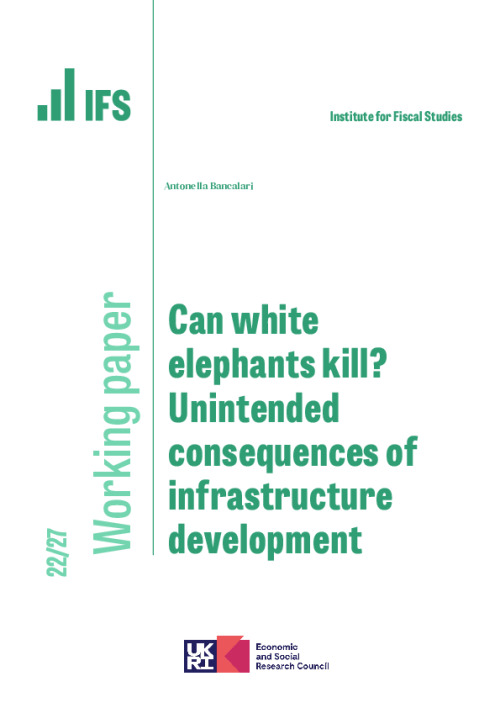Downloads
I provide evidence of the severe social costs imposed by infrastructure projects that are being implemented (i.e., projects started but not yet completed) in the context of sewerage in Peru. Using a counterfactual implementation predicted from geography-based cost considerations as an instrument, I show that implemented projects increase infant and under-five mortality. These results are driven by hazards, poor hygienic conditions and unsafe behavior, which increase deaths by waterborne diseases and accidents. Delays and mid-construction halting are common, and exacerbate the lethal effects of projects. Failing to take the implementation phase into account could severely bias the welfare evaluation of infrastructure.
Authors

Senior Research Economist
Antonella Bancalari is a Senior Research Economist at the Institute for Fiscal Studies.
Working Paper details
- DOI
- 10.1920/wp.ifs.2022.2722
- Publisher
- Institute for Fiscal Studies
Suggested citation
Bancalari, A. (2022). Can white elephants kill? Unintended consequences of infrastructure development. London: Institute for Fiscal Studies. Available at: https://ifs.org.uk/publications/can-white-elephants-kill-unintended-consequences-infrastructure-development (accessed: 27 April 2024).
More from IFS
Understand this issue

Conservative Party Conference: Can the next government afford the NHS?

Disability, illness and pain are real problems for the entire economy
28 August 2023

Retirement is not always a choice that workers can afford to make
6 November 2023
Policy analysis

The past and future of NHS waiting lists in England
29 February 2024

Recent trends in and the outlook for health-related benefits
19 April 2024

4.2 million working-age people now claiming health-related benefits, could rise by 30% by the end of the decade
19 April 2024
Academic research

Evaluating pricing health insurance in lower-income countries: A field experiment in India
14 March 2024

The consequences of miscarriage on parental investments
22 March 2024

The menopause "penalty"
18 March 2024
